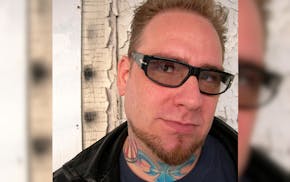Hiroshi Yamauchi, 85, who transformed his great-grandfather's playing-card company, Nintendo, into a global video game powerhouse, died Sept. 19 in Kyoto, Japan, of complications of pneumonia.
Yamauchi, who led Nintendo from 1949 to 2002, was Japan's most unlikely high-tech success story. Named president of the family business at 22, he steered Nintendo into board games, light-emitting toy guns and baseball pitching machines before the company arrived at arcade games.
Its "Donkey Kong" and the original "Mario Bros." became hits and gave rise to Nintendo's wildly successful home video game business.
The Nintendo Entertainment System, a console first released in Japan in 1983 as "Famicom," unseated early leaders in the video game industry, selling more than 60 million units thanks to shrewd marketing, close attention to product quality and a crop of games based on unlikely yet endearing characters that soon became household names.
Under Yamauchi, who professed not to understand video games, Nintendo went on to dominate the business. When a successor machine was released in 1990, fans camped outside electronics stores for days in anticipation; it sold nearly 50 million units. Next came the Nintendo 64 and Nintendo Game Cube home consoles as well as Game Boy hand-held machines.
In the early 1990s, Yamauchi found himself in the middle of an international dispute when he offered to buy a majority stake in the Seattle Mariners. The team, established in 1977, had been threatening to leave Seattle if it could not find a new owner willing to keep it there. Nintendo had its U.S. headquarters in Seattle.
The team's owners approved the deal but Commissioner Fay Vincent and a four-man MLB owners' committee initially opposed it. They relented and approved the sale in 1992 after Mariners fans and the Seattle news media rallied in favor of it.
new york times

Whitey Herzog, who managed Cardinals vs. Twins in 1987 World Series, dies

Official who helped MSHSL on pioneering ventures dies at 89

Former 'KQRS Morning Show' prankster Lee Siegfried, aka Crazy Cabbie, dies at 55

Richard Serra, who recast sculpture on a massive scale, dies at 85

